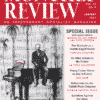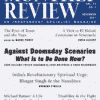Anatomy of a Propaganda Campaign: Jeremy Corbyn’s Political Assassination
Jeremy Corbyn, the former leader of the British Labour Party, was subjected to a concerted propaganda campaign by the British right-wing military-industrial establishment and amplified by mainstream media. | more…

The Fight to Save San Francisco’s City College: An Organizer’s View
Free City! is a book for organizers, by organizers. Written from inside the struggle, it is a history of the five-year campaign to save San Francisco’s community college system from being shuttered by a highly politicized accreditation agency. The movement went on to win support and funding for the country’s most inclusive free college measure. | more…

Say, Gaza
A new poem by Linda Backiel. | more…

Better Build Back the movements—Ol’ Schmo’s tru blu 1%
A new poem by Black Agenda Report poet-in-residence, Raymond “Nat” Turner. | more…

January 2022 (Volume 73, Number 8)
Cuba’s world leadership in sustainable human development is of world-historic importance. | more…

Preface
This special issue of Monthly Review, The Cuban Revolution Today: Experiments in the Grip of Challenges, carries forward a tradition established six decades ago. The stance of the magazine reflects the view of C. Wright Mills. In his Listen, Yankee, Mills wrote that we don’t worry about the Cuban Revolution, we worry with it. This volume is put together in that spirit. | more…

Introduction
The U.S. government is obsessed with Cuba. Cuba is a small island, ninety miles off the shore of Florida, that is home to eleven million people. Not a day has gone by that the United States has not tried to overturn the Cuban Revolution, through the assassination of its leaders, invasions by proxy forces, preventing it from normal commercial and diplomatic relations, and encouraging social distress in the island to become a counterrevolutionary force. That is the level of the obsession. | more…

The Blockade as a Double-Edged Sword
Notwithstanding an ongoing commitment to redouble its efforts, Cuban socialism has not taken full advantage of its own human and material resources to develop its productive forces. It is necessary to distinguish between our right and duty to struggle against the blockade and our expectations regarding what one can and cannot hope for if it is lifted. | more…
We Must Return to the Future
The Cuban Revolution cannot disintegrate because it was never made of meringue. Not because it has not been sweet, but because the revolution has also tasted bitter fruits that, to date, we have known how to turn into strengths. | more…

Socialism Cannot Postpone Its Promise of Democracy
On Sunday, July 11, 2021, demonstrations occurred in various parts of Cuba. Many of the demonstrators went onto the streets to protest the frequent prolonged power outages in various locations, shortages of food and medicine, and the general precariousness of daily life. A variety of different perspectives are putting their own spin on these events. | more…

The Communist Party of Cuba and Present Challenges
The Eighth Congress of the Communist Party of Cuba—held from April 16 to 19, 2021—offers salient questions, issues, and other themes of the current reality of Cuba from the view of revolutionary militants. Let us take heed. | more…

Socialism Against the Siege
Despite Cuba’s advantages—its free, universal public health system and its capacity for rapid scientific development, which put it at the forefront in research and vaccine production globally—it was unable to escape the pandemic’s blows. | more…

December 2021 (Volume 73, Number 7)
With the rapidly worsening capitalist demolition of the planetary environment and the expansion of ecosocialist movements in response, leading establishment think tanks, like the corporate-supported Breakthrough Institute, dedicated to promoting the ideology of “green capitalism” at any cost, have found themselves in a difficult place. | more…